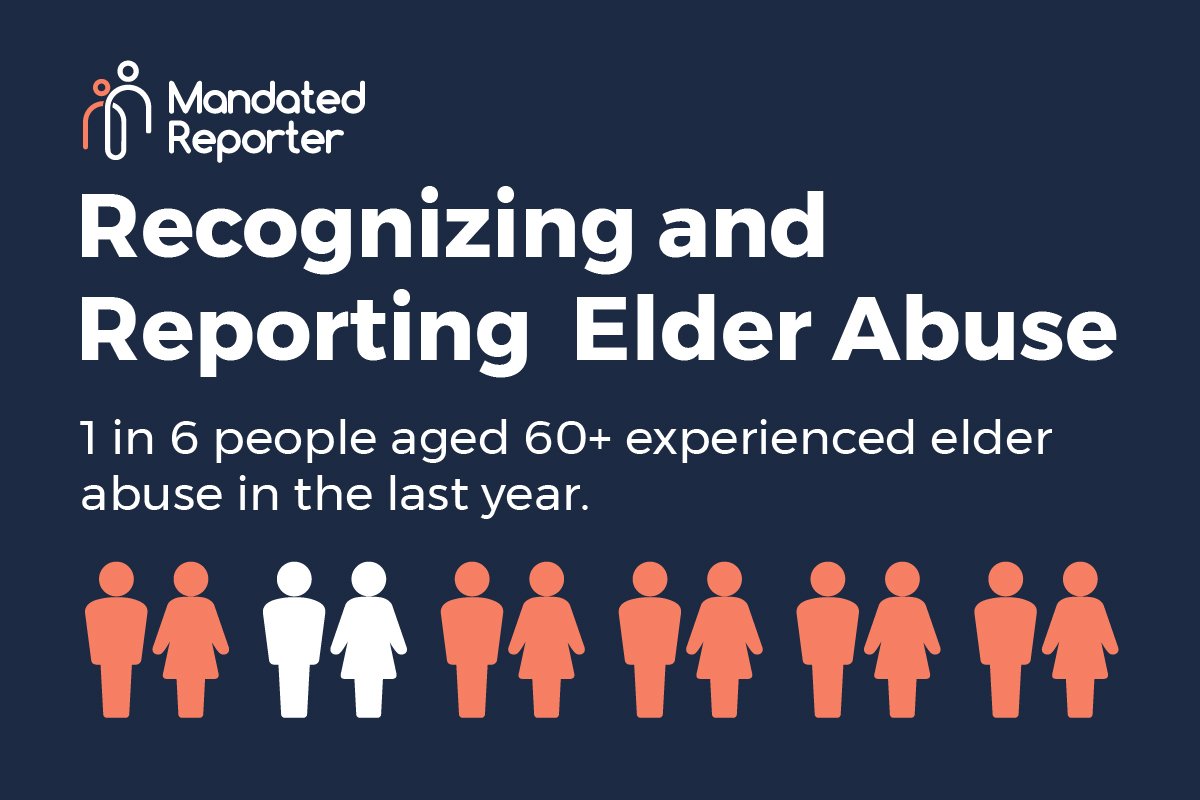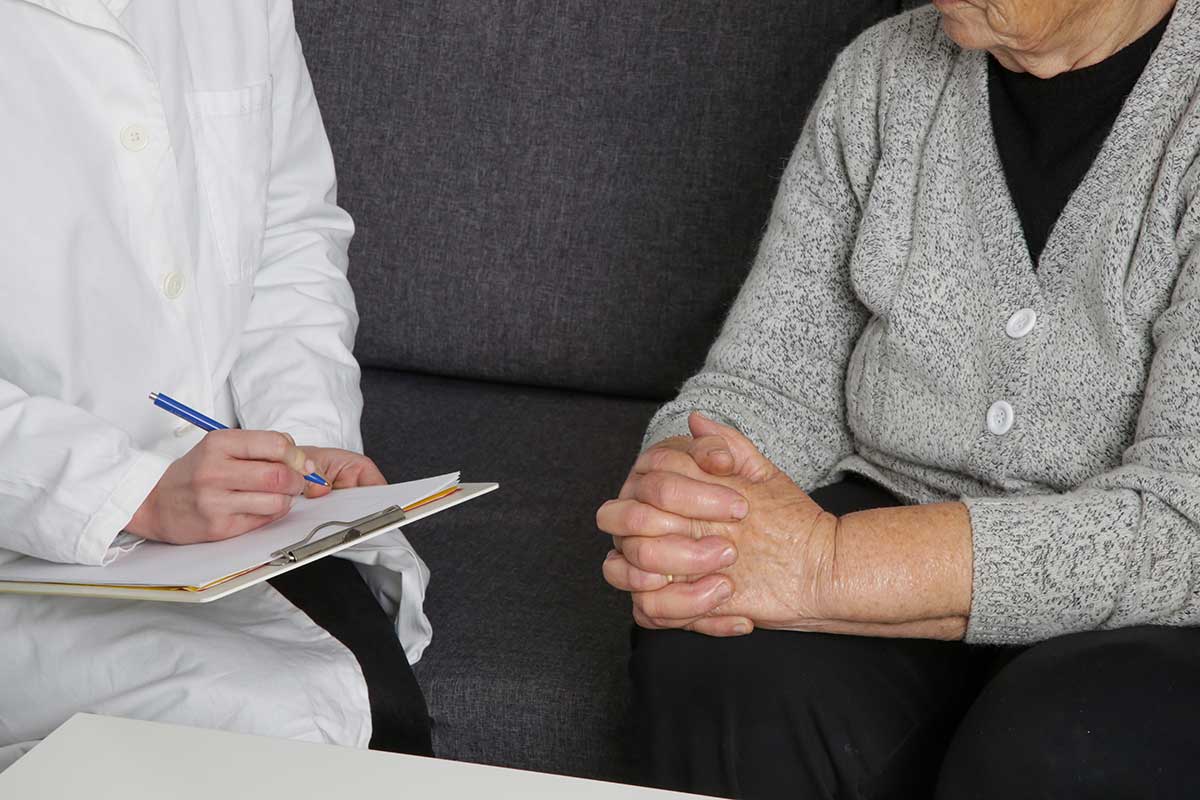Reporting elderly abuse can help protect an aging adult from harm. Whether it’s intentional abuse or exploitation, or unintentional harm or self-neglect, reporting elder maltreatment is the first step to getting vulnerable adults the help and support they need.
When to Report Elder Abuse
Reporting timelines may vary depending on your state, but a good rule of thumb for when to make an initial report is:
- Right now. Call 911 if the elder is in immediate danger.
- The same day, or within 24 hours.
Mandated reporters must act when they have reasonable cause to suspect abuse. You do not need to investigate and collect proof to make a report.
What qualifies as reasonable suspicion? In general, reasonable suspicion or reasonable cause to suspect abuse is when another individual with your level of education, training, and experience would come to the same conclusion.
Are you required to report elder abuse?
Where to Report Abuse of an Elderly or Disabled Adult
If you suspect abuse, neglect, or self-neglect of an elderly or disabled adult, you should make a phone report to one of the following:
Local Law Enforcement
If an elderly or dependent adult is in immediate danger, contact local law enforcement right away. Law enforcement officers can immediately intervene to protect the victim, conduct an investigation, and potentially prosecute the perpetrator.
If the aging or dependent adult is not in immediate danger, then you can report to APS or a long-term care ombudsman.
Adult Protective Services
Adult Protective Services (APS) programs investigate allegations of adult maltreatment and provide services to meet the needs of aging and dependent adults.
The National Adult Protective Services Association (NAPSA) can help you find APS reporting information in your state. Select the state or territory in which you reside to get contact information for APS near you. Find APS in your state.
APS receives and gathers information from a report, then screens it to determine if it needs to be referred to another agency for services or assigned to investigators.
When screening a report, APS will consider factors such as:
- Do the allegations meet definitions of maltreatment?
- Does the alleged victim meet program eligibility criteria?
- What should be the priority level for case initiation?
Your report details matter during this screening process. It’s important to understand the types of abuse, warning signs of abuse, and to provide as much information as possible.
Learn more about Recognizing and Reporting Elder Abuse.
Local Long-Term Care Ombudsman Program
An elder abuse report should be made to your local Long-term Care Ombudsman (LTCO) program if the suspected abuse has occurred in a long-term care facility, like a nursing home or assisted living facility.
LTCO programs are responsible for investigating abuse reports and advocating for clients within long-term care facilities. Throughout the investigative process, an LTCO representative may also cross-report to local law enforcement or APS.
You may be required to send reports to multiple agencies, such as local law enforcement and LTCO, for example.
Each state may have different requirements for reporting, such as making phone reports followed by a written or online report. Be sure you understand all of your reporting requirements.
What to Include in an Elder Abuse Report
There is no requirement for you to conduct an investigation or gather proof of maltreatment before making a report of elder abuse or neglect.
However, you do want to provide as much information as possible in your report, which will likely include:
- Full name and age of the elderly or dependent person
- The address and living situation of the person
- Immediate safety concerns
- Any mobility limitations, medical conditions, or cognitive conditions
- The type of abuse suspected
- Description of red flags or signs of abuse
- Any evidence available (photos of bruises, bank records, etc.)
- Information about the suspected abuser (name, address, relation to person)
- Your name, title, and contact information
- Your relationship to the person
- Other persons who may have knowledge of the abuse
Failing to Report Elder Abuse
For mandated reporters with a legal obligation to report suspected abuse or neglect of elderly and dependent adults, failing to report can become a criminal offense.
Many states have penalties for failing to report that include:
- Fines and financial penalties
- Jail time
- Both fines and jail time
Organizations that care for or provide services to elderly or dependent adults may also be liable for failing to report, preventing a mandated reporter from making a report, or for making a false report.
Elder Abuse Often Goes Underreported. Training Helps.
Elder abuse frequently goes unnoticed or unreported.
Victims may hesitate to self-report, particularly if a perpetrator is someone they know, like a family member, trusted professional advisor, or caregiver. Other reasons elder abuse goes underreported include isolation or fear.
As a mandated reporter for elder abuse, you can protect the aging adults in your care by completing mandated reporter training and renewing it annually, so you can be confident in your ability to identify and report abuse.
For organization administrators, you can protect the clients in your care and your organization by deploying training to your program’s administrators, employees, and volunteers.
Knowing how to recognize and report elderly abuse is a critical skill that can help protect vulnerable adults in your care and community.



